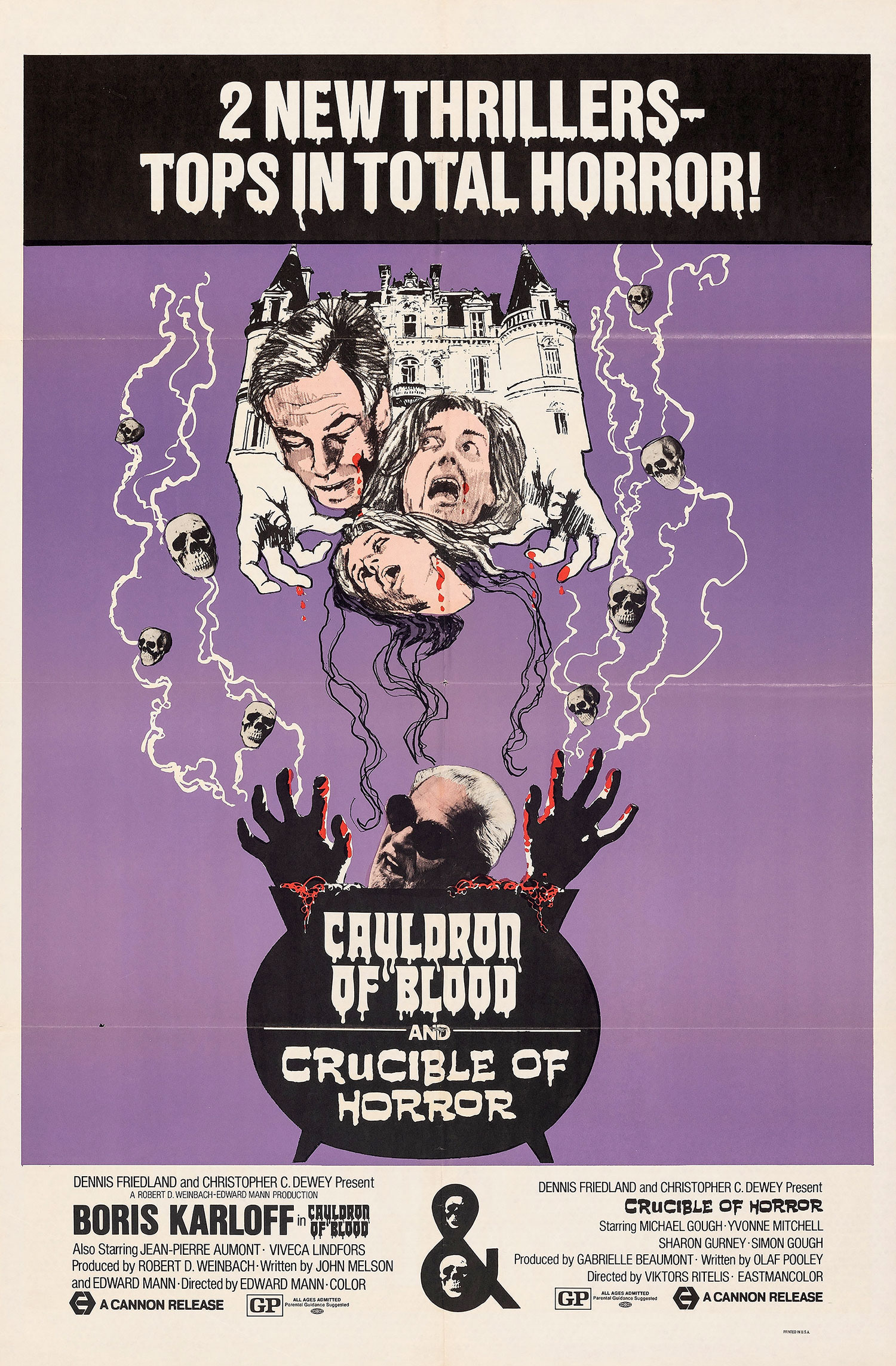There is more content out there than one can possibly experience, and this was true in the days before the web, as well. That’s how an odd psychological horror flick like Crucible of Horror can become largely forgotten, its prints left to decay, its copyright allowed to lapse. The film hasn’t been completely forsaken by the entertainment biz, however. There is a fully restored Blu-Ray version out there, but most versions consist of dismally cared for prints on VHS and older DVDs, formatted for CRT televisions, and with much footage missing. The version I watched for this review had the picture and missing footage restored, but is a 1.33:1 print cropped to widescreen. Maybe someday the version used in the Blu-Ray will become available to stream, but for now this less-than-perfect version is the best streamers can get.
From 1971, Crucible of Horror, originally released as The Corpse in the UK, features a small ensemble cast in a story somewhat based on the classic French film, Les Diaboliques. This film, well, not so much of a classic, as indicated above, but it is quite good.
The film tells the story of the Eastwood family, an upper-crusty bunch in London. They are dominated by the tyrannical Walter Eastwood (Michael Gough), who is an investor of some sort, alongside his son, Rupert (played by Gough’s son in real life, Simon). Walter is stern with his son, but Rupert gets off lightly compared to Walter’s wife, Edith (Yvonne Mitchell), and daughter, Jane (Simon Gough’s wife in real life, Sharon Gurney — what a family affair). Walter abuses Edith and Jane mentally and physically, in one brutal scene lashing Jane with a riding crop. I have to wonder what it was like for Gurney filming this scene with her father-in-law.
Edith and Jane have stood all they can, and decide to murder Walter and make it look like a suicide. They do the dirty deed, sneaking down to a cottage in the country while Walter is out of town, then hurrying back to the city. They await the inevitable  phone call from the police with the bad news of Walter’s apparent suicide, but it never comes. Desperate, they travel back to the cottage, only to find Walter’s body missing.
phone call from the police with the bad news of Walter’s apparent suicide, but it never comes. Desperate, they travel back to the cottage, only to find Walter’s body missing.
That’s the last of the plot I’m going to give away. Revealing the murder itself was almost too much for this reviewer, and I hope it does nothing to spoil the film for any potential viewers. But, it’s the stuff after Edith and Jane discover Walter’s body unaccounted for that really makes this film worth a watch.
This is a linear tale, but screenwriter Olaf Pooley and director Viktors Ritelis managed to create a confused narrative, anyway. There are twists and turns in this plot that beg for explanation, and that explanation never comes. The events in this film just transpire, and the burden of acceptance is left to the audience.
One would think that a film that has as profound lapses in storytelling as does Crucible wouldn’t be worth much of a glance. But Ritelis and company somehow turned lack of a logical resolution into one of this film’s strong points. It doesn’t make any sense, and it also doesn’t seem to matter.
Much of this is due to the strength of the performances. I never met Michael Gough, but I have seen a few interviews here and there. He seemed gentle and personable. Walter Eastwood is anything but. He is the worst kind of patriarch, demanding total obedience from wife and children. Should there be disobedience, it is met with violence. Even while the rules are being followed, there’s nothing that Edith and Jane can do but wither under Walter’s scrutiny. He is a monster, and played with total believability by Gough.
Meanwhile, Mitchell is excellent as a woman that has lived her entire marriage with this terrible man, and, until she decides on murder, seems to have no will left with which to fight.
After the early scene where Walter beats Jane, rather than fly to comfort her daughter after it is all over, Edith has to sneak to a closet with a small door adjoining Jane’s room and whisper to her from there. The Eastwood house is such a horror that Edith dare not let Walter see her comfort Jane. That’s pretty heavy stuff.
The film’s resolution is not a happy one, but it is an excellent end to the story, with an edge just as hard as the rest of the film. There were any number of ways the final act and denouement could have gone, and I could foresee none of it. Should one wish to delve into the foggier realms of horror and see something unique and unusual, Crucible of Horror is a fine option.
